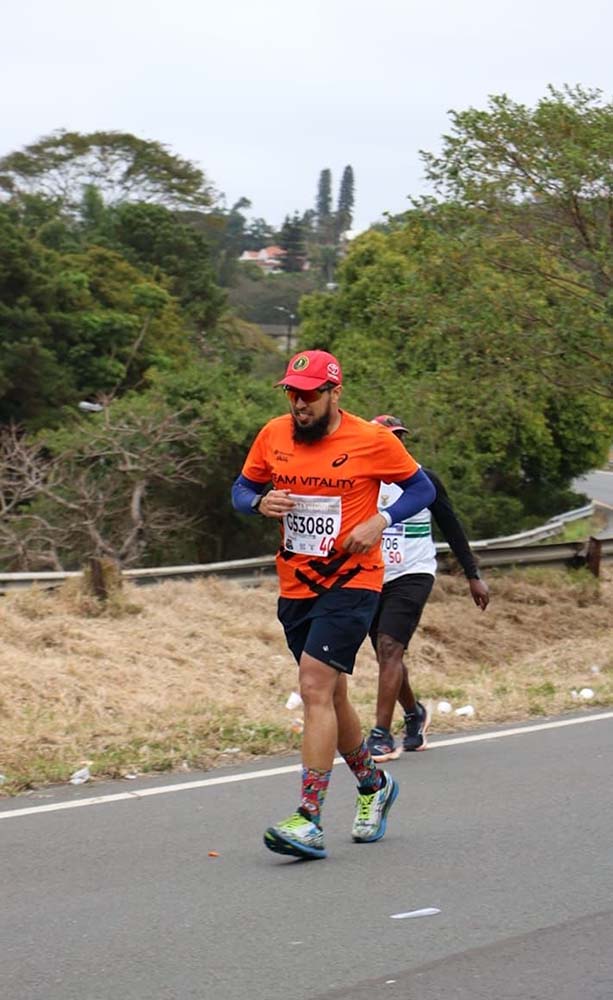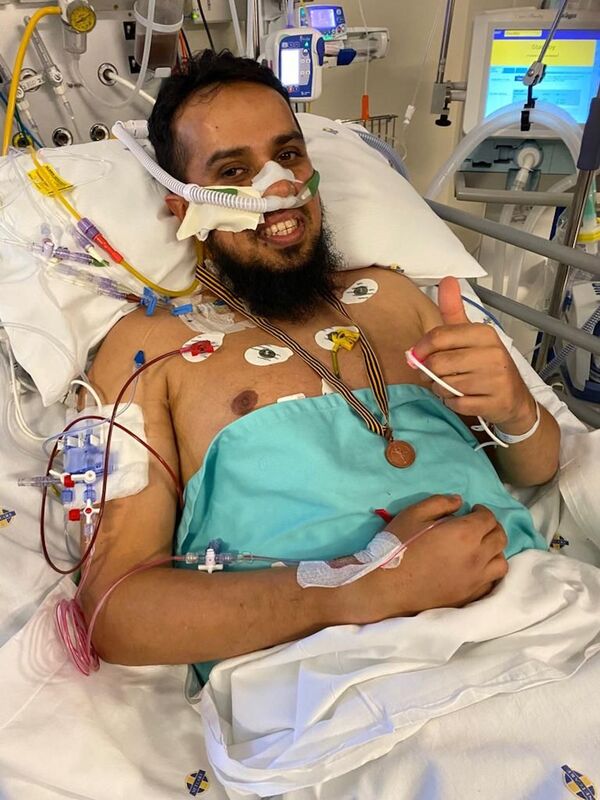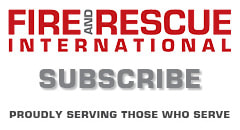- Home
- Magazines
-
Newsletters
- 19 July 2024
- 12 July 2024
- 5 July 2024
- 28 June 2024
- 14 June 2024
- 7 June 2024
- 31 May 2024
- 24 May 2024
- 17 May 2024
- 10 May 2024
- 3 May 2024
- 26 April 2024
- 19 April 2024
- 12 April 2024
- 22 March 2024
- 15 March 2024
- 8 March 2024
- 1 March 2024
- 23 February 2024
- 16 February 2024
- 9 February 2024
- 26 January 2024
- 19 January 2024
- 12 January 2024
- 22 December 2023
- 1 December 2023
- 24 November 2023
- 10 November 2023
- 3 November 2023
- 27 October 2023
- 20 October 2023
- 13 October 2023
- 6 October 2023
- 29 September 2023
- 22 September 2023
- 15 September 2023
- 8 September 2023
- 25 August 2023
- 18 August 2023
- 11 August 2023
- 4 August 2023
- 28 July 2023
- 21 July 2023
- 14 July 2023
- 7 July 2023
- 30 June 2023
- 23 June 2023
- 15 June 2023
- 2 June 2023
- 26 May 2023
- 19 May 2023
- 12 May 2023
- 5 May 2023
- 28 April 2023
- 21 April 2023
- 14 April 2023
- 6 April 2023
- 31 March 2023
- 24 March 2023
- 17 March 2023
- 10 March 2023
- 3 March 2023
- 24 February 2023
- 17 February 2023
- 10 February 2023
- 3 February 2023
- 27 January 2023
- 13 January 2023
- 22 December 2022
- 15 December 2022
- 9 December 2022
- 2 December 2022
- 25 November 2022
- 18 November 2022
- 11 November 2022
- 4 November 2022
- Advertising
- Subscribe
- Articles
-
Galleries
- AOSH Firexpo 2024
- Midvaal Fit to Fight Fire 2024
- WoF KNP 2023 Gallery
- TFA 2023 Gallery
- DMISA Conference 2023
- ETS 2023 Gallery
- Drager Fire Combat and Rescue Challenge 2023
- AOSH Firexpo 2023
- Midvaal Fit to Fight Fire
- WC IFFD 2023
- NMU 13th Fire Management Symposium 2022
- JOIFF Africa Conference 2022
- ETS 2022 Gallery
- TFA 2022 Gallery
- IFFD 2018
- SAESI
- TFA
- WRC 2018
- WRC 2019
- A-OSH/Securex
- IFE AGM 2019
- ETS Ind Fire Comp Nov 2019
- ETS Challenge 2021
- Drager launch
- Drager Fire Combat and Rescue Challenge 2022
- TFA
- Contact
- Home
- Magazines
-
Newsletters
- 19 July 2024
- 12 July 2024
- 5 July 2024
- 28 June 2024
- 14 June 2024
- 7 June 2024
- 31 May 2024
- 24 May 2024
- 17 May 2024
- 10 May 2024
- 3 May 2024
- 26 April 2024
- 19 April 2024
- 12 April 2024
- 22 March 2024
- 15 March 2024
- 8 March 2024
- 1 March 2024
- 23 February 2024
- 16 February 2024
- 9 February 2024
- 26 January 2024
- 19 January 2024
- 12 January 2024
- 22 December 2023
- 1 December 2023
- 24 November 2023
- 10 November 2023
- 3 November 2023
- 27 October 2023
- 20 October 2023
- 13 October 2023
- 6 October 2023
- 29 September 2023
- 22 September 2023
- 15 September 2023
- 8 September 2023
- 25 August 2023
- 18 August 2023
- 11 August 2023
- 4 August 2023
- 28 July 2023
- 21 July 2023
- 14 July 2023
- 7 July 2023
- 30 June 2023
- 23 June 2023
- 15 June 2023
- 2 June 2023
- 26 May 2023
- 19 May 2023
- 12 May 2023
- 5 May 2023
- 28 April 2023
- 21 April 2023
- 14 April 2023
- 6 April 2023
- 31 March 2023
- 24 March 2023
- 17 March 2023
- 10 March 2023
- 3 March 2023
- 24 February 2023
- 17 February 2023
- 10 February 2023
- 3 February 2023
- 27 January 2023
- 13 January 2023
- 22 December 2022
- 15 December 2022
- 9 December 2022
- 2 December 2022
- 25 November 2022
- 18 November 2022
- 11 November 2022
- 4 November 2022
- Advertising
- Subscribe
- Articles
-
Galleries
- AOSH Firexpo 2024
- Midvaal Fit to Fight Fire 2024
- WoF KNP 2023 Gallery
- TFA 2023 Gallery
- DMISA Conference 2023
- ETS 2023 Gallery
- Drager Fire Combat and Rescue Challenge 2023
- AOSH Firexpo 2023
- Midvaal Fit to Fight Fire
- WC IFFD 2023
- NMU 13th Fire Management Symposium 2022
- JOIFF Africa Conference 2022
- ETS 2022 Gallery
- TFA 2022 Gallery
- IFFD 2018
- SAESI
- TFA
- WRC 2018
- WRC 2019
- A-OSH/Securex
- IFE AGM 2019
- ETS Ind Fire Comp Nov 2019
- ETS Challenge 2021
- Drager launch
- Drager Fire Combat and Rescue Challenge 2022
- TFA
- Contact
Follow us
Medical teams come to runner Junaid Bhayat’s aid during recent Comrades Marathon
When Junaid Bhayat’s friends could keep him on his feet no longer, the medical team attending to runners after the final stretch of the Comrades Marathon had to resuscitate the dangerously dehydrated runner and place him in an ice bath, before his transfer to Netcare St Augustine’s Hospital’s intensive care unit. “I have always admired Comrades runners. I was doing shorter distance triathlons, as well as cycling with Team Impi cycling club when the challenge of ‘the Ultimate Human Race’ inspired me to start serious training with a group of running friends in April this year,” says Bhayat, age 44, a chartered accountant from Musgrave, Durban.
“It is an incredible feeling at the starting line. I met up with my friends, and we were feeling strong. The atmosphere was indescribable when they played Chariots of Fire, Shosholoza and our national anthem before the start of the race.” Bhayat paced himself, making good steady progress. “I walked up a few of the hills, it’s a long day and you can’t run every bit of the race. At that stage I was eating and drinking regularly, and kept going knowing there were some downhills coming. I was slightly ahead of my planned schedule and by Fields Hill I was still comfortable. “At Westville my wife and kids encouraged me, and gave me some refreshments, and from there I just wanted to get it over with. I didn’t eat or drink any more after that. My heart rate was climbing higher and higher and I was overheating but I kept my mind on the finish line.” In his determination to reach the end, Bhayat’s body could not cope with the dehydration and the heat generated in the last section of the punishing 90km ultramarathon. Bhayat’s running mates’ efforts to keep him going despite their own exhaustion caught the attention of the television cameras. Just 150m short of the finish line, he collapsed and “blacked out”. Nearby, under the watchful eye of Comrades Marathon Association race doctor Dr Jeremy Boulter, emergency medical specialists, the Netcare St Anne’s Hospital emergency department nursing team, paramedics, physiotherapists and volunteers were briskly attending to runners in the Comrades Finish Medical Facility at Moses Mabhida Stadium. About 80 percent of patients attended to in this medical facility were brought in over the last two hours of the race. Dr Boulter adds that the CMA implemented extensive medical, emergency, first aid and physiotherapy provisions for runners on race day, provided by Netcare 911 and Ampath Laboratories, with medical assistance available to runners at strategic positions along the race route and at the finish. The Comrades Medical Facility has been a defining feature of The Ultimate Human Race since 1977. Headed by Dr Boulter for the past 42 years, the Comrades Medical Facility is lauded as the largest temporary medical facility outside of a conflict zone anywhere in the world. “Mr Bhayat was brought into the facility in a comatose condition by five or six burly schoolboys and placed in the care of a specialist in training from Wits University, Dr Deshin Reddy, who swiftly recognised that Mr Bhayat’s condition was critical,” recalls Dr Nic Dufourq, emergency medicine specialist from the University of KwaZulu-Natal (UKZN). Dr David Morris and Dr Duncan Havenga, emergency medicine specialists and Dr Thembeka Shishane, a registrar of the UKZN emergency medicine programme, worked with Dr Reddy, paramedic Shaun Paul, Netcare 911’s regional operations manager for KwaZulu-Natal, and nurses from Netcare St Anne’s Hospital to stabilise Junaid in the Netcare pre-hospital intensive care unit within the tent. Junaid’s core temperature was recorded at 42.2 degrees Celsius, confirming he had heatstroke. This is a medical emergency as the body can no longer self-regulate at such high temperatures and starts to shut down. The team swiftly placed Junaid in an inflatable ‘rubber duck’ raft filled with ice water. More ice was placed under his arms and over his body to help cool his core temperature and cold intravenous fluids were administered. Intubated and ventilated, Junaid was soon stable enough for Netcare 911 to transfer him to hospital. Unbeknownst to Junaid who remained in a coma for two days, from the moment he appeared on TV, a fellow member of Team Impi cycling club Dr Shabbir Dawood, a physician and nephrologist practising at Netcare St Augustine’s Hospital, had recognised him and his need for immediate hospitalisation. “I have looked after patients who ran the Comrades previously, and I could recognise signs that made me realise he would need care in the ICU to recover. I phoned his wife immediately, and we started making the arrangements to book a bed and prepare for his admission to Netcare St Augustine’s Hospital,” Dr Dawood says. Under Dr Dawood and the multidisciplinary medical team’s care, Junaid woke from his coma and was treated for a few days in ICU to recover from heatstroke and acute kidney damage. “I received so many calls from people who were concerned for Mr Bhayat, and we are most pleased to report that he is recovering well and was discharged from hospital a few days later,” adds Dr Dawood. Mande Toubkin, Netcare’s general manager: emergency, trauma, transplant and corporate social investment added, “The teamwork behind the scenes for the Comrades Marathon was absolutely in the spirit of this celebrated South African event, with medical teams coming together from various organisations to provide emergency assistance to runners.” With its extensive experience in setting up and operating field hospitals including the Comrades Finish Medical Facility, the Netcare Group has been a medical partner to the Comrades Marathon for the past 21 years. Nursing staff in attendance at the facility were from the emergency department of Netcare St Anne’s Hospital, a Trauma Society of South Africa (TSSA) level 1 accredited trauma centre. All along the race route, Netcare 911 was part of the coordinated efforts of the medical management behind the scenes of this major international sports event. “With so many patients coming through the Comrades Finish Medical Facility requiring treatment in a brief period, it provides a perfect platform for collaboration of supervised training of emergency medicine registrars from both UKZN and Wits University,” adds Dr Havenga. Junaid thanked the Comrades Marathon Association for the medical support provided to him and other runners on the day. “My family and I are very grateful, firstly to God for enabling me to survive and for all the doctors, nurses, paramedics and others who helped me in my time of need and for the amazing support we’ve experienced, especially from Dr Dawood,” Junaid says. “I would also like to express my thanks to my friends who tried to get me to the end of the race, even though they were so exhausted themselves, and to Dr Dawood and the other doctors and kind ICU nurses who cared for me at Netcare St Augustine’s Hospital.” Source: Netcare |
Quick navigation
Social
|
Who are we?FRI Media (Pty) Ltd is an independent publisher of technical magazines including the well-read and respected Fire and Rescue International, its weekly FRI Newsletter and the Disaster Management Journal. We also offer a complete marketing and publishing package, which include design, printing and corporate wear and gifts. |
Weekly FRI Newsletter |
© Copyright 2018 Fire and Rescue International. All Rights Reserved.







